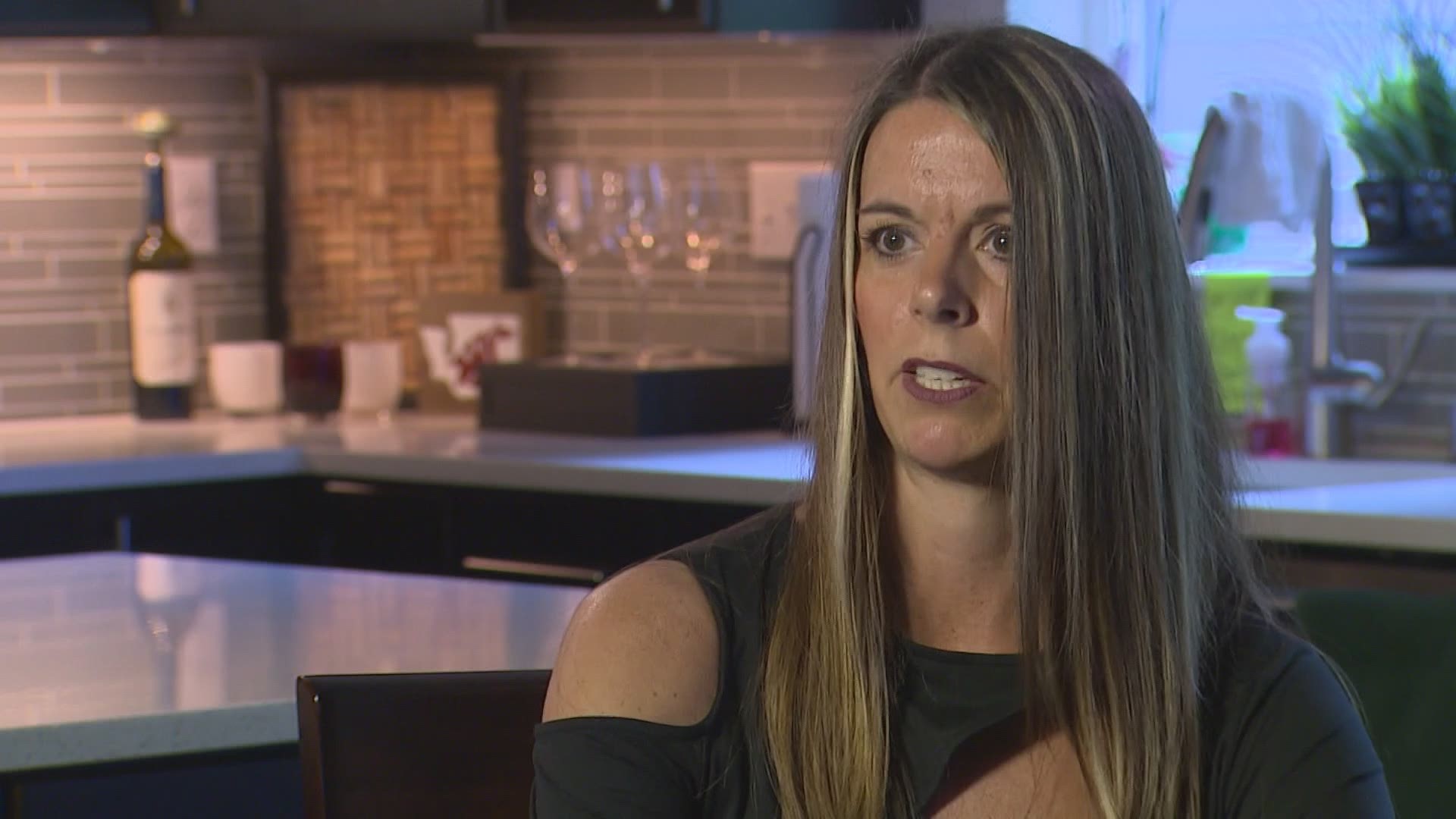SEATTLE — It has been called a "pandemic within a pandemic." The unprecedented mental health issues children continue battling during the age of COVID-19.
It has left desperate parents looking for answers, but that help can be hard to come by.
Psychiatric units are overflowing, and the worst may not be over.
Julie Barrett's daughter started struggling soon after the coronavirus pandemic closed down her school last March.
Now, 377 days later, the 14-year-old hit a breaking point.
“She was out on the street saying she was gonna kill herself, that she just wanted to die,” said Barrett, who is a mother of four. “She wanted to be left there to die.”
The teen, who has a love for music and her friends, went to a regular church meeting that night. All seemed well until Barrett got a call that her daughter was in the midst of a mental breakdown.
“The isolation was really difficult for her,” explained Barrett. “When the school year started last September, and there was really no end in sight, we saw a decline over time. To look in her room and to know how much time she spent in there just hurting, that's hard.”
RELATED: Pandemic continues to impact children's mental health. Here are resources in Washington to help
Life was tough for teens before the pandemic, with stresses from school, parents and social media.
Now add issues many never dealt with before, like parents unable to pay the mortgage or even buy food, and suddenly things can take a frightening turn.
Since the beginning of the COVID-19 pandemic, Washington state has seen one in four youth under 18 years old struggle with suicidal ideation. That is an increase from one in 10 in 2018.
“We've got a significant number of kids who we're really trying to figure out what to do for them,” said Dr. Alysha Thompson, who leads the psychiatric unit at Seattle Children's Hospital.
Thompson said they are seeing a record number of kids coming to the ER for mental health issues. Some as young as 7 years old.
The unit has 41 beds but is now seeing up to 170 patients every week. Children are being sent to other hospital units until a bed opens up.
Doctors said the disruption in routine by not going to school or seeing friends, plus the alienation of a life fully online can create chemical changes in the brain that rewire the way children think.
“It basically teaches us that we always have to react in a stress response,” said Thompson. "It bypasses the thinking part of our brain, so we can’t think things through clearly. It just means we're kind of living in a crisis mode from day to day, and that's a really hard place to live."
If you can find a bed at your local hospital, follow-up care is much more difficult to get.
Seattle's Ryther psychiatric clinic is operating at 125% capacity, seeing about 1,000 patients every month.
At the same time, Director of Outpatient Services Dr. Larissa Mancil said they are losing clinicians at an alarming rate due to COVID-19 burnout.
“We have parents calling us,” explained Mancil. “You can tell the desperation in their voices, and we simply can't get their kids in because we just don’t have the people.”
The brutal reality is those without good insurance will wait up to a year to be seen. That means the coronavirus is widening an already troublesome mental health disparity across America.
“Those who have higher levels of stress are the kids who are more likely to have parents who are unemployed and losing insurance during the pandemic,” said Mancil. “The outcomes for those kids are not great.”
RELATED: Nadella Family donates $15 million to Seattle Children's Hospital for youth mental health care
So, what does the future hold for those who have seen their lives turn into a pandemic blur?
Some experts fear a rise in something typically reserved for soldiers, post-traumatic stress disorder. The condition can dramatically impact mental and physical health well into adulthood, including early death.
Mental health, a pandemic within the pandemic that experts said must be treated as such.
“We have to properly address this mental health crisis for what it is,” said Thompson. “We need to invest in our mental health workforce to make sure we have enough professionals to meet the need we have at the moment. I think we’ll continue to see the suicide rate that’s already rising continue to go up. We’ll continue to see presentations at our emergency department go up pretty dramatically. We’re at a choice point of deciding what are we going to do to address this crisis.”
In the meantime, experts advised parents to nurture mental health by maintaining a structured daily routine for their children and keeping a steady sleeping and eating schedule. Now that COVID-19 vaccines are available, allowing kids to see their friends in a safe environment is also helpful.
“There has to be a give and take,” said Mancil. “Children need room for social interaction.”
Also, try to stay positive even when things are difficult.
In Julie Barrett's battle, her daughter will spend the next year at a treatment center in Arizona. Two years of her life are gone as the family waits to become whole once again.
“As a parent, you want nothing more than your kids to be healthy and happy,” said Barrett. “I want her healthy and happy and home here with us.”
For more information on how to navigate children’s mental health, click here.

